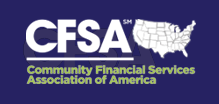Good riddance to lending rule that would have hurt business and consumers
May 22, 2020 | CFSA Commentary
By Brian Lynn
Federal regulators at the Consumer Financial Protection Bureau (CFPB) are soon expected to roll back portions of a small-dollar lending rule titled, “Payday, Vehicle Title, and Certain High-Cost Installment Loans,” issued under former Director Richard Cordray. This is good news for Florida consumers and small businesses.
One of the rule’s provisions, known as the “ability to repay,” would have imposed unreasonable requirements for what lenders need to do, before making a loan, to determine whether the borrower could repay the loan. Such requirements are ones that many small operators could not meet and ignore what we already do to determine a customer’s creditworthiness.
If implemented, the rule would have forced my family’s small business to close our doors and taken away credit options from millions of Americans. Thankfully, the forthcoming rule is widely expected to roll these requirements back.
My father founded LendingBear more than 30 years ago to help hardworking Floridians access credit, whether it was during a financial hardship or simply because they prefer the access, choice, and convenience of our services. I work daily to keep the business competitive and grow the company, something that is increasingly harder to do, particularly during COVID-19.
As the bureau prepares to release its new rule on small-dollar loans, I can recall my firsthand experience during the rule-making process and realize how Cordray’s bureau clearly didn’t care about my perspective as a small-business owner. The CFPB met with small business owners like me because it was required by law. Period. They had no intention to truly consider our views.
In fact, the bureau’s own estimates found that the proposed rule would decrease small-business revenue by more than 70%. This alone revealed that the proposed rule’s true intent was to put companies like mine out of business, not to protect consumers. Without evidence, the bureau had already decided that short-term, small-dollar loans were harmful to consumers.
The CFPB didn’t even look to states who, for decades, have been regulating the small-dollar loan industry. I remember asking CFPB officials if the bureau had looked at existing state laws to fully understand how small-dollar loans are regulated. To my surprise, the answer was no. My home state of Florida is one of more than 30 states that has small-dollar lending laws with strong consumer protections that could serve as a model for the country. But in typical Washington fashion, CFPB bureaucrats claimed to have all the answers.
My customers, who would be severely impacted by the CFPB’s rule, were incredibly unhappy about what the agency was doing at the time. Many of them, along with more than 1 million others, expressed their concerns during the rule’s comment period only to be ignored by the CFPB.
These are hardworking, everyday Americans including teachers, police officers and salespeople, to name a few. Some use small-dollar loans for things like unexpected medical expenses and home and auto repairs, while others simply prefer our products and services due to the friendly service, ease of access and simple loan terms.
By eliminating access to the products my business provides, many customers would be forced to turn to illegal lenders, more expensive forms of credit or suffer the consequences of unpaid bills. This is especially true during a health and economic crisis like the one we see ourselves in today.
If the bureau ignored small-business owners and customers, and failed to understand existing state laws on small-dollar loans, then who did the bureau work with to draft and finalize their rule on small-dollar loans? Special interest groups based in Washington. Government emails and other records have shown that these self-proclaimed consumer advocacy groups had significant influence within the CFPB and were given full access and drafting privileges throughout the rule-making process.
All this wrong will soon be made right. The new leadership at the CFPB has brought a welcome change in philosophy where the voices of small-dollar loan customers are truly considered and data and research guide decisions. It is a relief to see that my federal regulator seems to be finally listening to consumers.
Today, the CFPB is led by Director Kathy Kraninger, a Trump appointee who is, of course, being criticized by the bureaucrats and special interest groups who authored the original rule and disregarded the voices of the very people they claim to want to protect. As a small business owner who was demeaned and ignored by Cordray’s CFPB bureaucrats, I see past their hypocritical and politically motivated attacks, and you should too.
Brian Lynn is the president of LendingBear and a resident of Florida.
Read the Op-Ed at The Orlando Sentinel.

